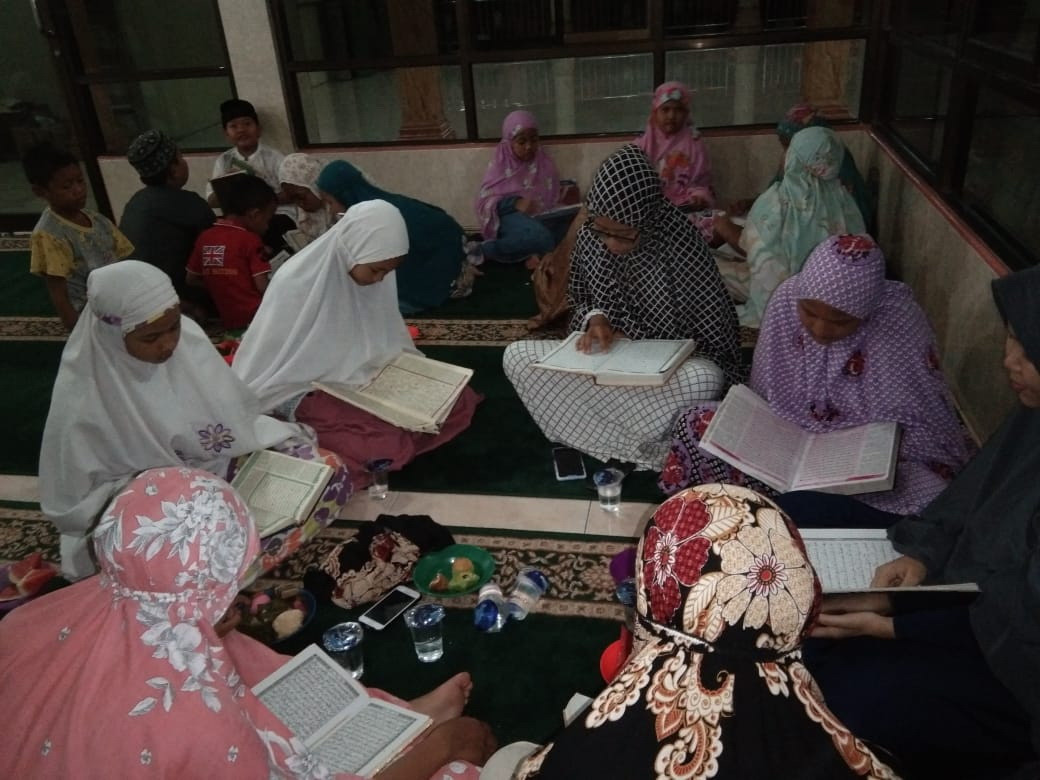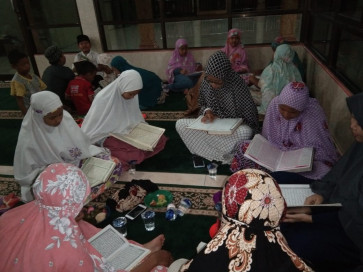Popular Reads
Top Results
Can't find what you're looking for?
View all search resultsPopular Reads
Top Results
Can't find what you're looking for?
View all search resultsMegawati and ‘pengajian’ that will never end
Seen in anthropological terms, for women the study group constitutes an arena of “liberation” from their routine household obligations as wives and mothers.
Change text size
Gift Premium Articles
to Anyone
The virtual world is in a whirl after the question, or more accurately criticism, from Megawati Soekarnoputri, chair of the steering committee of the Agency for the Implementation of the State Ideology of Pancasila (BPIP), about the activities of ladies who are busy attending pengajian (religious study groups).
She asked, “When will it finish?” You see, according to Megawati, Indonesia’s fifth president, there are so many other things that women should be attending to, not just pengajian.
In 1992, my study about “Mubalighat as mediators in religion” was published in the book Women and Mediation in Indonesia (KITLV, 1992). It described the role of preachers in mediating values about Islam and women according to the views of the ustadzah (female religious teachers) or mubalighat (female preachers) in the context of development for women such as the Family Welfare Movement (PKK), family planning, integrated health service posts (Posyandu) and family issues such as polygamy. The article examined why women from different social classes were so active in pengajian even though the material presented often did not fulfill their expectations or defend their causes as women.
At that time, pengajian was a communal activity within majelis ta’lim (seated Islamic study groups) in suburban areas. Gradually, however, in line with Soeharto’s growing openness toward cultural, non-political Islam, pengajian entered more elite areas, alongside the burgeoning fashion trend of Muslim garb created by entertainers who pioneered modern Muslim fashions such as Ida Leman, Ida Royani or Anne Rufaida.
Pengajian started to emerge among the elite, such as those initiated by the Islamic study group Paramadina led by scholar Nurcholish Madjid, based in Pondok Indah, South Jakarta, or the Shia study groups led by Jalaluddin Rahmat in Bandung or more exclusive sessions such as pengajian at private homes inviting prominent ustads such as Aa Gym.
The topics studied in these forums can generally be divided into four themes: tafsir (examining the interpretation of the Quran) as developed by Quraish Shihab and Aa Gym, the study of fiqh (Islamic jurisprudence) by, among other figures, Zainuddin MZ or Kosim Nurseha, studies of Sufism for more limited groups and studies of selected topics on various themes.



















